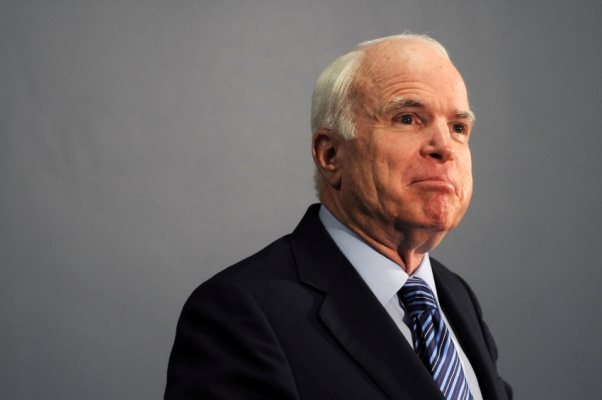Afghanistan: “Zero Option” Has Zero Chance of Working
Andy Thomchick /
Senator John McCain (R–AZ) bombarded top U.S. commander in Afghanistan General Joseph Dunford at a recent Senate Armed Services Committee hearing with tough questions when he refused to give a concrete recommendation on the post-2014 U.S. troop presence in Afghanistan:
Don’t you understand, general, that…one of the reasons why we’re having so much difficulty in some areas is because the Afghans don’t know what our commitment is?…They saw what happened in Iraq where we had a commitment.
General Dunford’s ambiguity and Vice President Biden’s continuing arguments for a “zero option” in Afghanistan threaten the strategic gains the United States has made in Afghanistan and may result in Afghanistan imploding post-2014.
Biden’s “zero option” means that after 2014, the U.S. would provide virtually no military support to the Afghan military. Instead of maintaining a sufficient force of conventional heavy-hitting forces in Afghanistan, which have successfully kept the Taliban and their al-Qaeda allies from operating effectively in Afghanistan, the U.S. would rely on surgical counterterrorism raids by special operations forces (SOF) and drone strikes.
The problem, as Heritage’s James Jay Carafano contends, is that relying entirely on SOF counterterrorism raids would result in a never-ending game of “whack-a-mole” against Taliban and al-Qaeda targets. Without backup from conventional forces, SOF counterterrorism units would be constricted to their bases, while an inexperienced Afghan National Army would be expected to operate effectively on its own without U.S. support.
Carafano argues that the U.S. and its partners have made remarkable progress over the past couple of years and that “many parts of the country are now fairly stable. In others, the bad guys have been battled to a standstill. Last year, for the first time, the Taliban failed to launch an offensive during the summer ‘campaign’ season.”
A “zero option” puts all of our hard-fought gains in jeopardy. The Taliban may not sweep in and take over all of Afghanistan, but an illegitimate and corrupt 2014 election, the lack of a strong U.S. presence, and a splintering of the Afghan security forces could cause the situation to quickly devolve into a massive civil war, Carafano claims.
The ambiguity surrounding troop numbers and the calls for a “zero option” need to end. The United States should make a strong commitment to the future stability and security of Afghanistan. The U.S. needs to continue the fight in Afghanistan to prevent it from once again becoming a sanctuary for terrorists and radical groups.
Andy Thomchick is currently a member of the Young Leaders Program at The Heritage Foundation. For more information on interning at Heritage, please click here.

